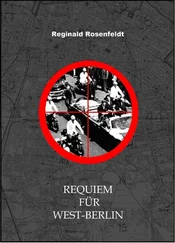Isaiah Berlin - Russian Thinkers
Здесь есть возможность читать онлайн «Isaiah Berlin - Russian Thinkers» весь текст электронной книги совершенно бесплатно (целиком полную версию без сокращений). В некоторых случаях можно слушать аудио, скачать через торрент в формате fb2 и присутствует краткое содержание. Год выпуска: 0101, Жанр: Старинная литература, на русском языке. Описание произведения, (предисловие) а так же отзывы посетителей доступны на портале библиотеки ЛибКат.
- Название:Russian Thinkers
- Автор:
- Жанр:
- Год:0101
- ISBN:нет данных
- Рейтинг книги:3 / 5. Голосов: 1
-
Избранное:Добавить в избранное
- Отзывы:
-
Ваша оценка:
- 60
- 1
- 2
- 3
- 4
- 5
Russian Thinkers: краткое содержание, описание и аннотация
Предлагаем к чтению аннотацию, описание, краткое содержание или предисловие (зависит от того, что написал сам автор книги «Russian Thinkers»). Если вы не нашли необходимую информацию о книге — напишите в комментариях, мы постараемся отыскать её.
Russian Thinkers — читать онлайн бесплатно полную книгу (весь текст) целиком
Ниже представлен текст книги, разбитый по страницам. Система сохранения места последней прочитанной страницы, позволяет с удобством читать онлайн бесплатно книгу «Russian Thinkers», без необходимости каждый раз заново искать на чём Вы остановились. Поставьте закладку, и сможете в любой момент перейти на страницу, на которой закончили чтение.
Интервал:
Закладка:
XV

RUSSIAN THINKERS
price that must be paid for recognition of the true nature of one's freedom: the individual's right to self-direction, as opposed to direction by state or church or party, is plainly of supreme importance if one holds
that the diversity of human goals and aspirations cannot be evaluated by
any universal criteria, or subordinated to some transcendent purpose.
But he maintains that, although this belief is implicit in some humanist
and liberal attitudes, the consequences of consistent pluralism are so
painful and disturbing, and so radically undermine some of the central
and uncritically accepted assumptions of the western intellectual tradition, that they are seldom fully articulated. In seminal essays on Vico, Machiavelli and Herder, and in 'Historical Inevitability', he has shown
that those few thinkers who spelt out the consequences of pluralism
have been consistently misunderstood, and their originality undervalued.
In his Four Essays on Liberty he suggests that pluralist visions of the
world are frequently the product of historical claustrophobia, during
periods of intellectual and social stagnation, when a sense of the intolerable cramping of human faculties by the demand for conformity generates a demand for 'more light', an extension of the areas of
individual responsibility and spontaneous action. But, as the dominance
of monistic doctrines throughout history shows, men are much more
prone to agoraphobia: and at moments of historical crisis, when the
necessity of choice generates fears and neuroses, men are eager to trade
the doubts and agonies of moral responsibility for determinist visions,
conservative or radical, which give them 'the peace of imprisonment, a
contented security, a sense of having at last found one's proper place in
the cosmos'. He points out that the craving for certainties has never
been stronger than at the present time; and his Four Essays on Liberty
are a powerful warning of the need to discern, through a deepening
of moral perceptions-a 'complex vision' of the world-the cardinal
fallacies on which such certainties rest.
Like many other liberals Berlin believes that such a deepening of
perceptions can be gained through a study of the intellectual background to the Russian Revolution. But his conclusions are very different from theirs. With the subtle moral sense which led him to radically
new insights into European thinkers, he refutes the common view that
the Russian intelligentsia were, to a man, fanatical monists: he shows
that their historical predicament strongly predisposed them to both
types of vision of the world, the monist and the pluralist-that the
fascination of the intelligentsia derives from the fact that the most
INTRODUCTION
sensitive among them suffered simultaneously, and equally acutely,
from historical claustrophobia and from agoraphobia, so that at one
and the same time they were both strongly attracted to messianic
ideologies and morally repelled by them. The result, as he reveals, was
a remarkably concentrated self-searching which in many cases produced
prophetic insights into the great problems of our own time.
The causes of that extreme Russian agoraphobia which generated a
succession of millenarian political doctrines are well known: in the
political reaction following the failure of the revolution of 1 825, which
had sought to make Russia a constitutional state on the western model,
the small westernised intellectual elite became deeply alienated from
their backward society. With no practical outlet for their energies, they
channelled their social idealism into a religiously dedicated search for
truth. Through the historiosophical systems of Idealist philosophy,
then at the height of its influence in Europe, they hoped to find a
unitary truth which would make sense of the moral and social chaos
around them and anchor them securely in reality.
This yearning for absolutes was one source of that notorious consistency which, as Berlin points out, was the most striking characteristic of Russian thinkers-their habit of taking ideas and concepts to their
most extreme, even absurd, conclusions: to stop before the extreme
consequences of one's reasoning was seen as a sign of moral cowardice,
insufficient commitment to the truth. But Berlin emphasises that there
was a second, conflicting motivation behind this consistency. Amongst
the westernised minority, imbued through their education and reading
with both Enlightenment and romantic ideals of liberty and human
dignity, the primitive and crushing despotism of Nicholas I produced a
claustrophobia which had no parallel in the more advanced countries
of Europe. As a result the intelligentsia'ssearch for absolutes began with a
radical denial of absolutes-of tradi tiona! and accepted faiths, dogmas and
institutions, political, religious and social; since these, they believed,
had distorted man's vision of himself and of his proper social relations.
As Berlin shows in his essay 'Russia and 1 848', the failure of the
European revolutions in 1 848 had the effect in Russia of accelerating
this process : it resulted among the intelligentsia in a profound distrust of
western liberal and radical ideologues and their social nostrums. For the
most morally sensitive among the intelligentsia, intellectual consistency
implied above all a process which they called 'suffering through' the
truth, the stripping off, through a painful process of inner liberation, of
all the comforting illusions and half-truths which had traditionally
xvii
R U S SIAN THINKERS
concealed or justified forms of social and moral despotism. This led to
a critique, with far-reaching implications, of the unquestioned assumptions at the base of everyday social and political conduct. This consistency, with the tensions engendered by its compound of faith and scepticism, and the insights to which it led, is the central theme of
Berlin's essays on Russian thinkers.
In a number of vivid portraits of individual thinkers, he shows that
the most outstanding members of the intelligentsia were continually
torn between their suspicion of absolutes and their longing to discover
some monolithic truth which would once and for all resolve the problems of moral conduct. Some surrendered to the latter urge: Bakunin began his political career with a famous denunciation of the tyranny of
dogmas over individuals, and ended it by demanding total adherence to
his own dogma of the wisdom of the simple peasant; and many of the
young 'nihilist' iconoclasts of the 186os accepted without question the
dogmas of a crude materialism. In other thinkers the battle was more
serious and sustained. The critic Belinsky is often cited as the archexample of the intelligentsia's inhuman fanaticism: from Hegelian principles he deduced that the despotism of Nicholas I was to be
admired, contrary to all the instincts of conscience, as the expression of
cosmic harmony. But Berlin points out, in an intensely moving study
of Belinsky, that if the longing for faith led him briefly to defend such
a grotesque proposition, his moral integrity soon drove him to reject
this blinkered vision for a fervent humanism which denounced all the
great and fashionable historiosophical systems as molochs, demanding
the sacrifice of living individuals to ideal abstractions. Belinsky
Читать дальшеИнтервал:
Закладка:
Похожие книги на «Russian Thinkers»
Представляем Вашему вниманию похожие книги на «Russian Thinkers» списком для выбора. Мы отобрали схожую по названию и смыслу литературу в надежде предоставить читателям больше вариантов отыскать новые, интересные, ещё непрочитанные произведения.
Обсуждение, отзывы о книге «Russian Thinkers» и просто собственные мнения читателей. Оставьте ваши комментарии, напишите, что Вы думаете о произведении, его смысле или главных героях. Укажите что конкретно понравилось, а что нет, и почему Вы так считаете.










